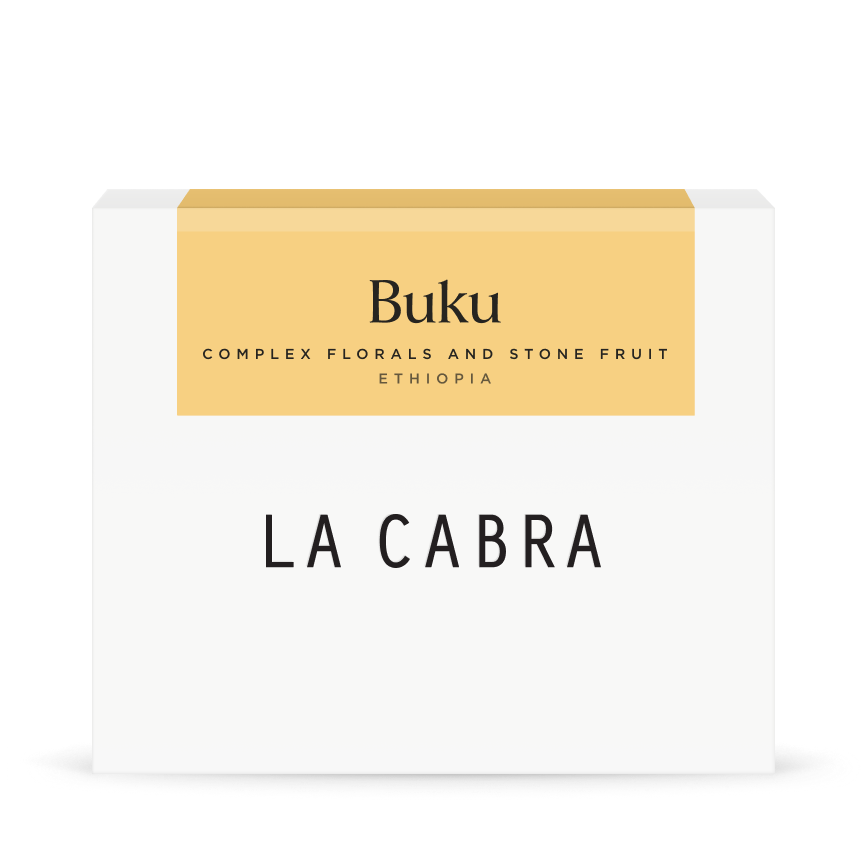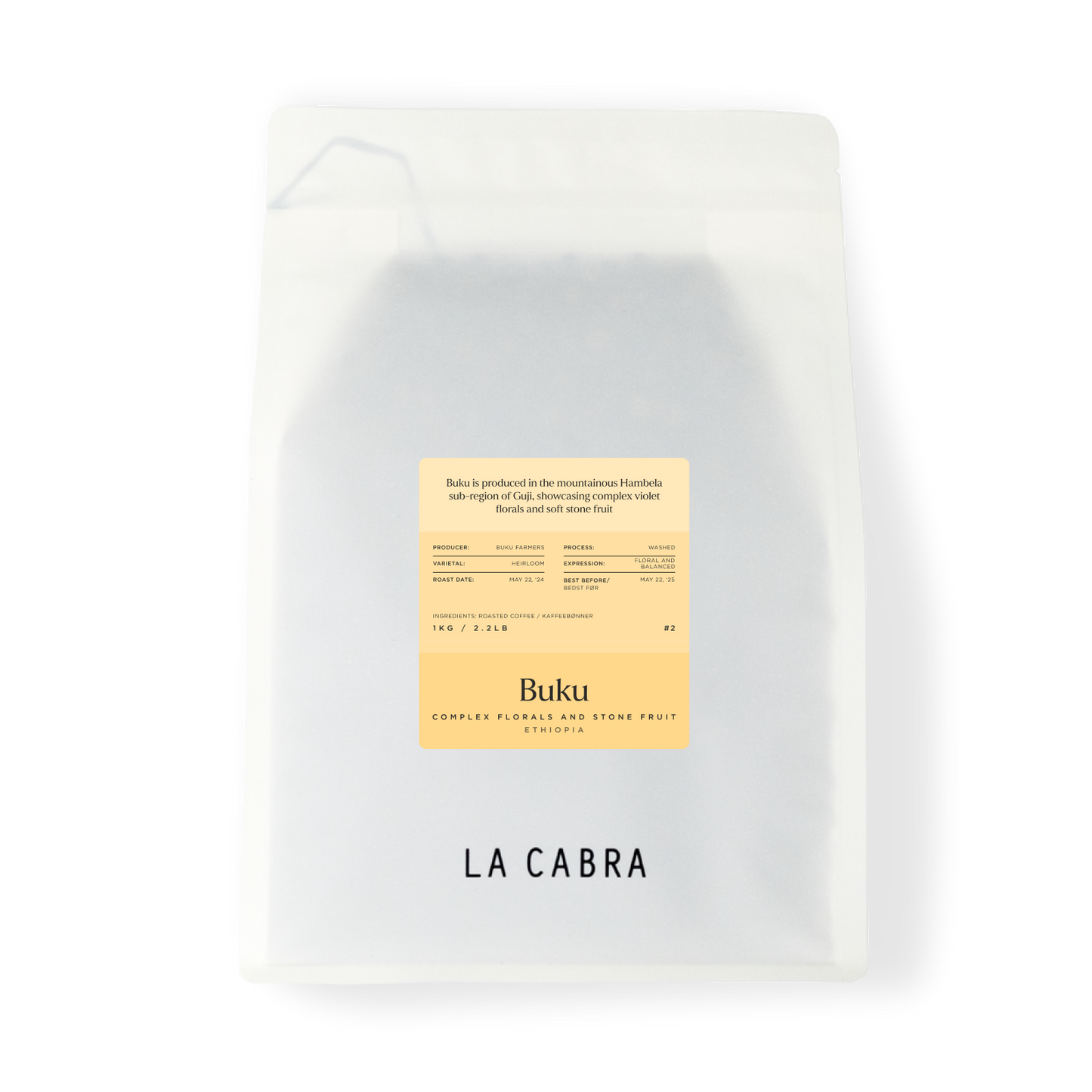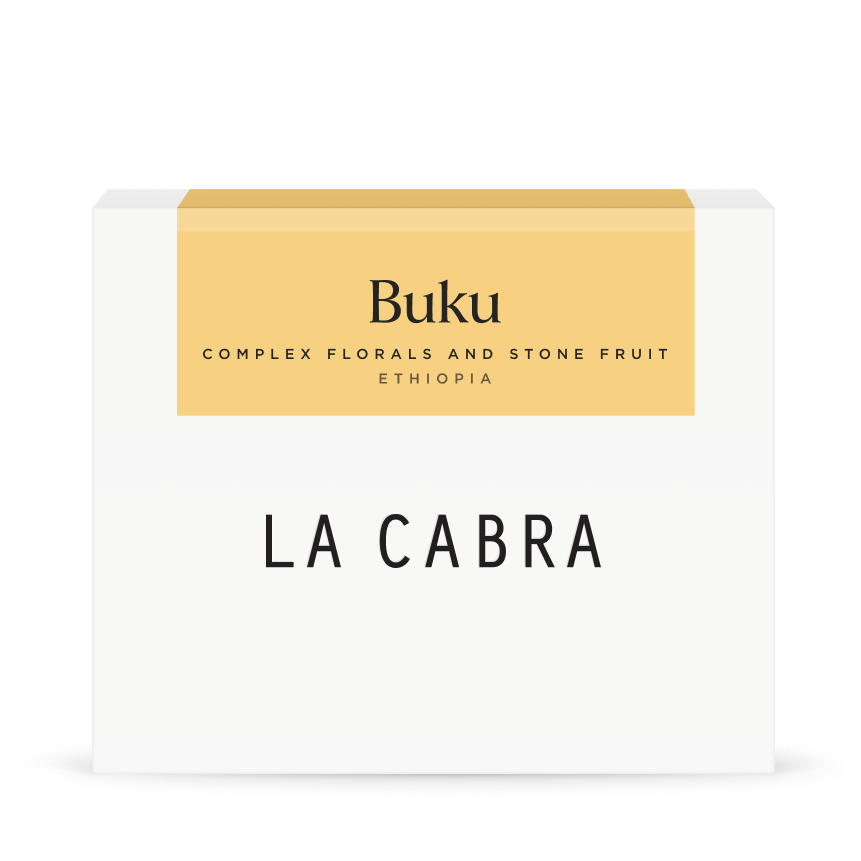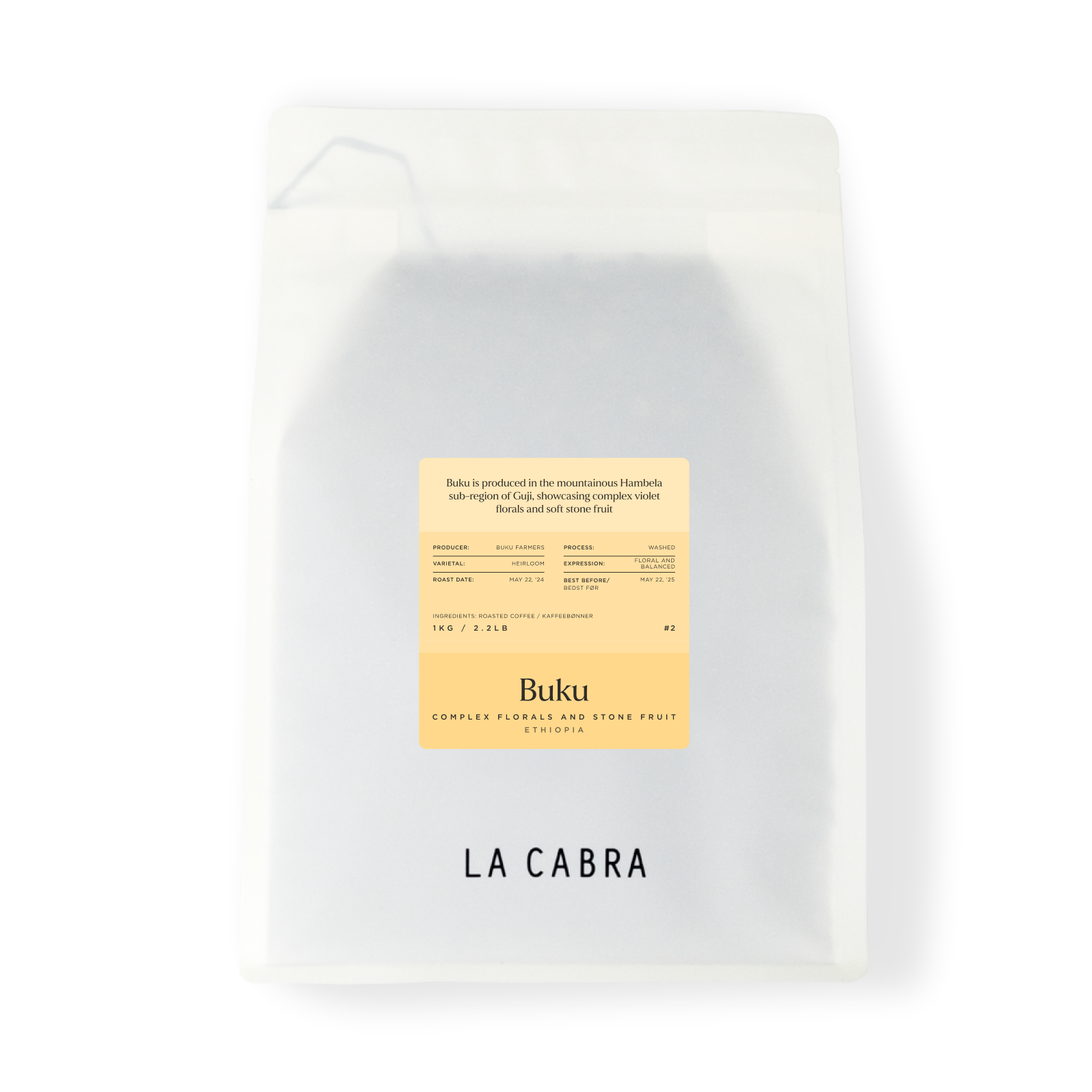

Buku
This lot is composed of cherries collected from the village of Buku in Guji, and processed at the Addisu washing station just outside of town. Guji lies in the southern Ethiopian highlands, in the same Rift Valley as the Yirgacheffe and Sidamo coffee growing regions. Buku is one of Guji’s many small coffee growing villages, lying in the Hambela sub-region at an altitude of over 2200 masl. Even by Ethiopian standards, this is a rural area, with many producers transporting their ripe cherries across long distances by donkey or mule, using dirt roads to reach the washing station.
Farmers here intercrop their coffee with both food crops and shade trees, especially with false banana, used throughout the coffee regions of Ethiopia. The plant’s symbiotic relationship with coffee trees, and the porridge-like dish that can be made from its starchy fruit, lead to its popularity across rural Ethiopia. The quiet rural lifestyle is striking here. Many have only ever worked with coffee, together with and at the mercy of nature. This close relationship and observation, alongside favourable conditions and soil, leads to excellent quality, without the use of external inputs such as pesticides and fertilisers.
-v1740477019244.jpg?1200x1500)
Washed Heirloom
This lot is processed using a careful washed process. The very high altitude means very cool conditions, especially overnight, leading to long fermentations and a soft and complex flavour profile. Here, we find soft violet florals backed up by stewed plum, ripe lemon and black tea in the cup.

Ethiopia
In Ethiopia, coffee still grows semi-wild, and in some cases completely wild. Apart from some regions of neighbouring South Sudan, Ethiopia is the only country in which coffee is found growing in this way, due to its status as the genetic birthplace of arabica coffee. This means in many regions, small producers still harvest cherries from wild coffee trees growing in high altitude humid forests, especially around Ethiopia’s famous Great Rift Valley.
We visited Ethiopia in the beginning of 2024, read more about coffee in Ethiopia and our photographer Paw Gissel's experiences.
-v1740477020560.jpg?1200x960)


























